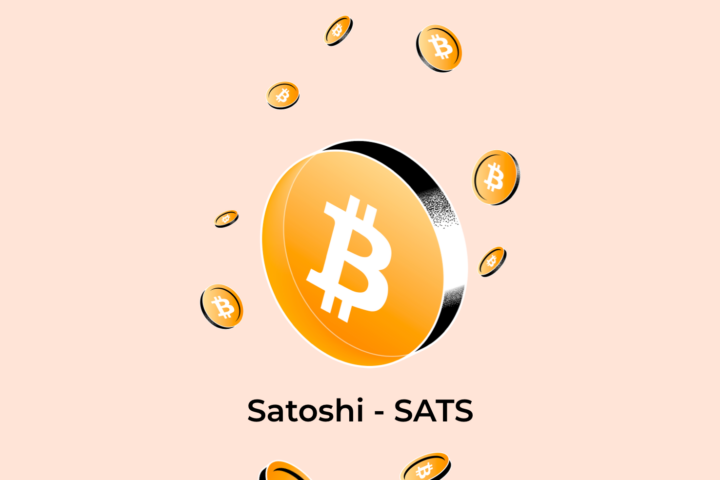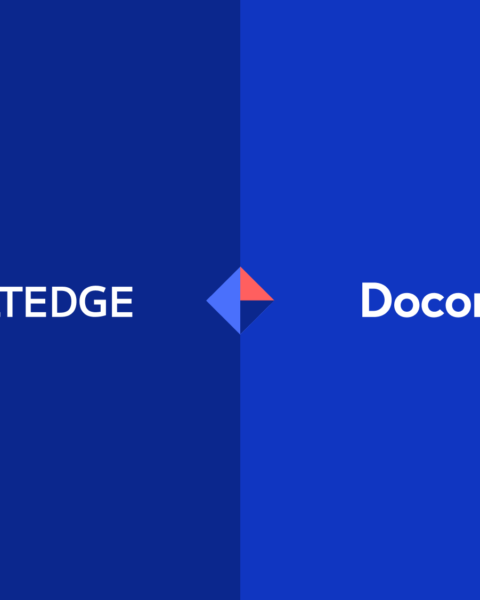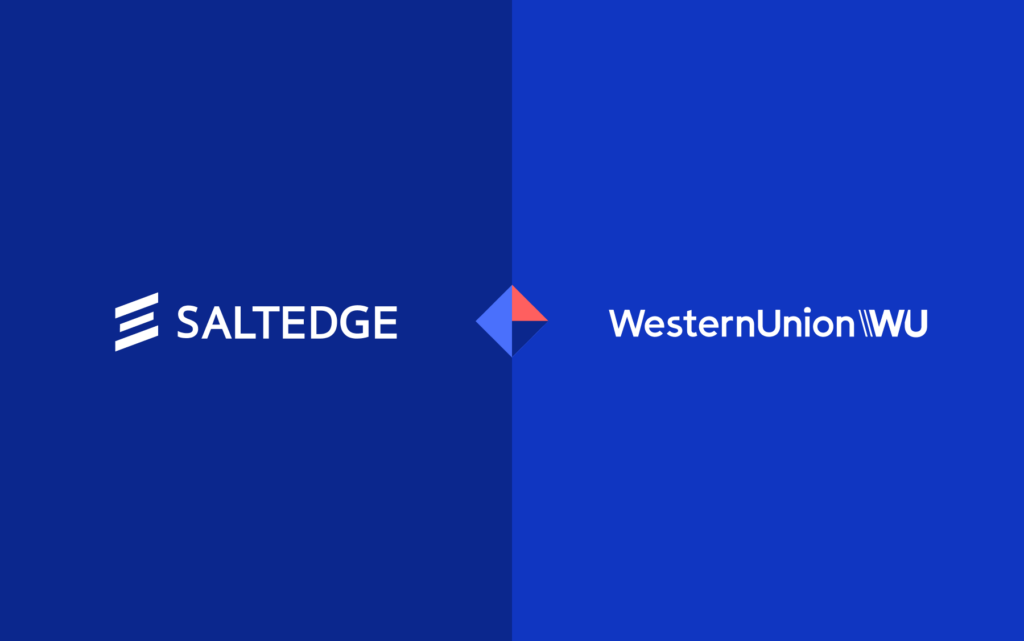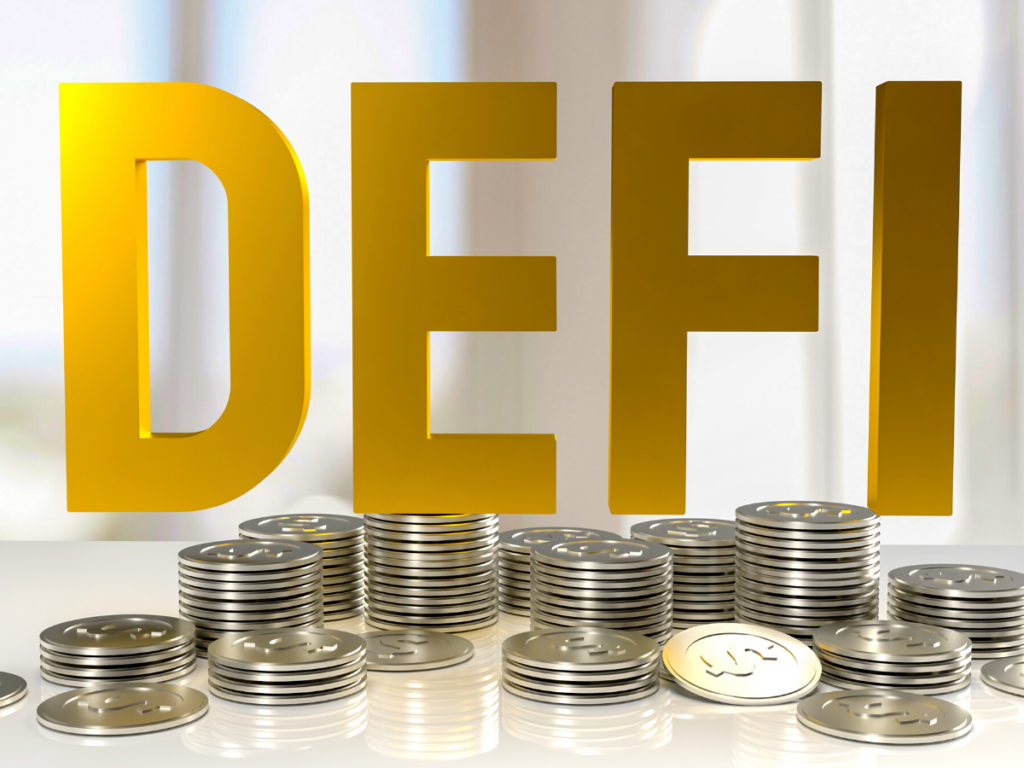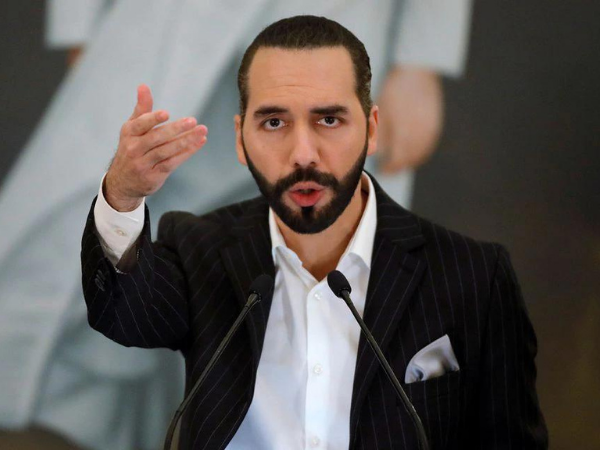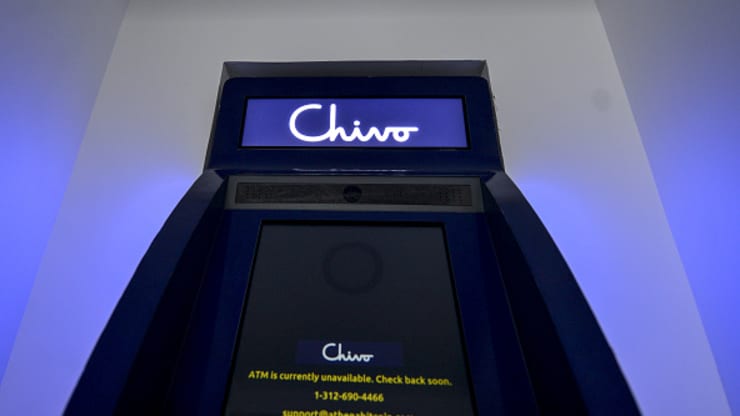Switching to the Satoshi standard and Lightning Network connectivity makes Bitcoin more tangible and easy to use. AAX has made the first move in the crypto space, already providing BTC to SAT
Salt Edge PSD2 Compliance Solution to be integrated into Western Union’s digital bank pilot in Europe
LiveSalt Edge has teamed up with Western Union, a global leader in cross-border, cross-currency money movement and payments, to integrate its solution into the latter’s multi-currency bank account pilot in Europe. Backed up by PSD2 compliance, Salt Edge’s solution will enable Western Union to extend the relationship with its customers, and create a new banking experience.
Becoming compliant with PSD2 means much more than fulfilling legal requirements. By turning to Salt Edge’s PSD2 Compliance Solution, Western Union is leveraging PSD2 possibilities for its customers, making the innovation more secure and allowing regulatory verified TPPs to access the developer portal and the PSD2 APIs in accordance with legal requirements. In the end, the final user enjoys an upgraded customer experience, using the new multi-currency bank account service.
“With plans underway to launch a Western Union digital bank pilot in Europe, being PSD2 compliant is critical to our success and enabling our products. It will allow us to offer customers a superior experience as we look to expand our service portfolio. Our collaboration with Salt Edge will allow us to meet these goals, based on the team’s focus on innovation and agility, and great experience in providing market-leading solutions” said Thomas Mazzaferro, Chief Data Officer for Western Union
Western Union today has one of the biggest financial networks in the world, connecting millions of consumers to their families and loved ones, as well as to the world economy, across more than 200 countries and territories and in over 130 currencies. The company’s global account payout capabilities are available in over 125 countries with real-time capabilities in approximately 100 countries. Over 60% of Western Union’s global account payout transaction volume is delivered in real-time.
Dmitrii Barbasura, CEO at Salt Edge added: “Ever since PSD2’s adoption, we at Salt Edge have been encouraging and helping companies take a positive and constructive approach to the directive and see it as a big-time opportunity rather than a compliance hardship. Western Union has had this approach from the very beginning of our collaboration, focusing all of its efforts on the end consumer and the way they’ll be enjoying the new services. We are honoured to be contributing to this by integrating our PSD2 Compliance Solution and helping Western Union create all those new opportunities for its consumers.”
Salt Edge has two main vectors of activity: enabling third parties to get access to bank channels via a unified gateway, and developing the technology necessary for banks to become compliant with the directive’s requirements. ISO 27001 certified and AISP licensed under PSD2, the company employs the highest international security measures to ensure stable and reliable connections between financial institutions and their customers. The company is integrated with 5000+ financial institutions in 50+ countries.
Asia markets fight for footing as investors fret over Evergrande crisis
LiveReuters: Asian stocks struggled to shake off contagion fears on Tuesday and selling pressure persisted amid concern that troubles at indebted developer China Evergrande could ripple across the world economy, markets and financial system.
Hong Kong’s Hang Seng (.HSI) hit a fresh 11-month low and was down 0.3% by midsession, with a early gains in banks and property stocks paring a little. Japan’s Nikkei (.N225) returned from a market holiday with a drop of almost 2%.
Currency, commodity and bond markets steadied, but overall demand for riskier assets remained low especially as the Federal Reserve is expected to step closer to tapering on Wednesday.
European futures rose 0.5% in the Asia session. FTSE futures advanced 0.7% and S&P 500 futures climbed 0.6% a day after selling hit banks on both sides of the Atlantic and tipped the S&P 500 to its steepest fall in two months.
“For markets to bounce we need to see concrete actions from the authorities to stem any wide spread contagion,” said Dave Wang, a portfolio manager at Nuvest Capital in Singapore.
Though China is on holiday, and mainland markets closed, there was little evidence of that yet, with no mention of Evergrande’s troubles in major Chinese state media.
Evergrande, struggling for cash, owes $305 billion and investors are on edge at the risk a messy failure reverberates through China’s property sector and everything exposed to it – primarily banks and then the broader economy.
China’s yuan steadied in offshore trade to recoup some of the losses that sent it to a three-week low on Monday. Evergrande (3333.HK) shares fell 4% as focus there shifts to Thursday when the company is due to make bond interest payments.
The next few days present yet more tests, with the Federal Reserve concluding a two-day meeting on Wednesday and likely to offer some guidance on the tapering outlook and with Evergrande due to meet its bond interest payments on Thursday.
In the currency market, traders took solace from the relative calm in Hong Kong after Monday’s plunge.
The euro traded at $1.1730, after having touched a near-one-month low of $1.1700 while the safe-haven yen slipped to 109.57 yen to the dollar.
The 10-year U.S. Treasury yield crept up to 1.3277%, with moves capped as markets have an eye to the Fed.
Investors are looking for the tapering timeline on its bond purchases as well as its board members’ long-term rates and economic projections.
“I think the Fed will calm things down and I guess defer their tapering decision till November, said Jarrod Kerr, the chief economist at Kiwibank.
This week will also see policy decisions from many other central banks spanning Brazil, Britain, Hungary, Indonesia, Japan, Norway, the Philippines, South Africa, Sweden, Switzerland, Taiwan and Turkey.
Oil prices also rebounded a tad in Asia after falling the previous day. U.S. crude futures traded at $70.98 per barrel.
Wobbling cryptocurrencies also found a floor, with bitcoin bouncing from a 1 1/2-month low of $40,193 to trade just shy of $43,000.
Stripe opens London fintech development office
Stripe is opening a fintech development office in London that will focus on open banking, embedded finance and bank partner integrations.The move represents another investment in the European market for the San Francisco-headquartered payments giant, coming just a week after it outlined plans to recruit hundreds more engineers in Dublin over the next three years.
Led by Emma Burrows, Stripe’s head of engineering in London, the fintech development office will report to the Dublin engineering hub.
It will lead the company’s work on open banking in Europe, including a pay-by-bank feature being piloted next month, which will enable Stripe users to accept payments over open banking PIS rails.
The office will also work on Stripe products in the embedded finance space across Europe, as well as build the bank partner integrations for features such as a bank transfer product, which is already in beta.
Says Burrows: “London is a global leader in fintech with a strong engineering community deeply committed to driving better financial services for consumers and businesses. Stripe engineers in London are already helping build the future of financial services, and we’re excited to do even more with our Fintech Development Office.”
Founded by Irish brothers John and Patrick Collison, Stripe is the most valuable private company in Silicon Valley, valued at $95 billion in its last funding round n March.
The European expansion comes as the firm is reportedly preparing for a stock market debut next year after appointing a law firm to explore a listing.
Deutsche Bank acquires Better Payment
LiveDeutsche Bank has acquired Berlin-based payment service provider Better Payment to expand its market share in the fast-growing market for online payment processing and acceptance. Better Payment operates a payments gateway that enables merchants to send and receive multiple forms of online payments and is currently installed at 1500 retailers
The gateway is also available as a white-label product for banks and other companies to add to their portfolio of services, a business element which Deutsche Bank is expecting to show double-digit growth rates over the coming years.
“Better Payment gives us broader market access in payment processing. Thanks to the know-how of their employees, their existing dealer relationships and technical solutions, we can accelerate our growth in the German market, which is key to us,” says Kilian Thalhammer, head of merchant solutions at Deutsche Bank. “We will develop additional synergies by integrating the respective products from Deutsche Bank and Better Payments.”
Financial terms of the transaction were not disclosed.
Hedera Solidity Smart Contracts Bringing Highest-Speed Programmability to Tokenization
Hedera Hashgraph, the most used, sustainable, enterprise-grade public network for the decentralized economy, today announced an upgrade to its Smart Contract Service, which will soon allow developers to harness the speed and scalability of the Hedera Token Service (HTS) for fungible and non-fungible tokens with the flexibility of fast, low-fee, and industry-standard Solidity smart contracts.
The upgrades will include integrating the Hyperledger Besu EVM and a unique virtual merkle data structure to more efficiently manage state changes on the Hedera network, as well as creating a new and highly performant database for state storage. These innovations enable new use cases that have been too slow and expensive to function well on existing smart-contract-based platforms.
“Smart-contract-driven applications today are powering an ecosystem of users, capital, and applications, driving trillions of dollars in economic activity. In Q2 2021 Ethereum settled $2.5 trillion in transactions, but this is just the tip of the iceberg in terms of the amount of commerce that can be pushed through Solidity-based contracts if they can be made orders of magnitude faster and more scalable,” said Atul Mahamuni, SVP of Products for Hedera. “With these enhancements, we are enabling the large and growing ecosystem of hundreds of thousands of Solidity and Vyper developers to make Solidity contracts extremely fast and highly scalable.”
Since its launch in February 2021, the Hedera Token Service (HTS) has seen broad adoption for use in applications leveraging both fungible and non-fungible tokens (NFT). HTS offers users the ability to issue and configure tokens on the Hedera platform, taking full advantage of Hedera Hashgraph’s native performance, security, stability, and governance with the ability to scale to thousands of transactions per second.
With the enhancements to Hedera’s Smart Contract service – which will be scalable to hundreds of transactions per second with finality in seconds and low, predictable fees – developers will be able to also enable programmability of those tokens, to enable DeFi and other applications, which require payments based on certain actions being taken or conditions being met. Smart contracts only have to be called as-needed, not during ordinary transfers, thereby taking advantage of the native speed of HTS, and offering the most flexible way to achieve programmability.
“At DOVU we are building proof-of-carbon, a trusted audit trail for the full verification, minting, and ongoing audit of carbon credits, our cDOV assets. We decided to leverage the Hedera network because it is unparalleled in cost and time to finality, and have the proven green credentials to boot,” said Matt Smithies, CTO of DOVU. “The new enhancements to Hedera’s Smart Contract service will ultimately enable DOVU to achieve our vision to evolve into a complete, non-custodial solution for our farmers and land managers to prove the ongoing storage of carbon. In other words, this has the potential to unlock the ability for DOVU to track decades worth of changes of carbon for a single project, whilst utilizing the security and native speed of Hedera Hashgraph, without relying on any layer 2 network.”
Indonesia’s Xendit becomes Southeast Asia’s latest Unicon
LiveDigital payments infrastructure provider Xendit has nabbed a $150 million Series C that elevates the company to a short list of Southeast Asia unicorns. Businesses from small kiosks (warungs) to SMBs and large players like Transferwise and Grab use Indonesian-based Xendit’s API-based technology to process payments, run marketplaces, disburse payroll, and detect fraud.
The firm, which says it is processing more than 65 million transactions with US$6.5 billion in payment value annually, intends to use use the new funding to scale its business, which mainly operates in Indonesia and the Philippines.
“It’s now clear that businesses need to have a digital presence,” says Moses Lo, co-founder and CEO, Xendit. “Xendit’s digital payments infrastructure enables the region’s new class of entrepreneurs to start and scale their payments faster and supercharges larger companies with modern, world-class financial services. What AWS has done for Compute, Xendit is doing for payments.”
The new financing comes just six months after the firm raised $64.6 million in a Series B led by Accel.
The latest round was led by Tiger Global Management with participation from existing investors Accel, Amasia, and Justin Kan’s Goat Capital.
Algorand Foundation Launches $300 Million USD Fund to Support DeFi Innovation
LiveThe Algorand Foundation, an organization dedicated to fulfilling the global promise of blockchain technology, by leveraging the Algorand protocol and open-source software, today announced the Viridis DeFi Program, a 150 million Algo (worth approximately $300 million USD today) fund to support DeFi innovation on the Algorand network. The fund will fuel the growth of decentralized exchanges, money markets, options markets, synthetic asset applications, and NFT platforms, all running on the best blockchain network for the future of finance.
“The Algorand Foundation is excited to launch this funding program to help accelerate the adoption of DeFi across the Algorand Ecosystem. Creating the right infrastructure, application ecosystem and liquidity will be key to ensuring that DeFi on Algorand is regarded as the world’s most energy-efficient, scalable and low-cost DeFi ecosystem” said Sean Lee, CEO of the Algorand Foundation.
Founded in 2017, Algorand was built from the ground up to handle the volume of transactions needed for DeFi, financial institutions, and governments to smoothly transition to the future of finance or FutureFi. The blockchain technology of choice for nearly 1,000 global organizations, Algorand enables the frictionless exchange of value and the simple creation of next-generation financial products and protocols.
50million ALGO, which has been re-allocated from the AlgoGrant fund, will exclusively support the development of DeFi infrastructure and applications ( DApps ). Within this, DeFi “SupaGrants” have been designed to support the creation of critical DeFi infrastructures such as cross-chain bridges and price oracles. The first $5M SupaGrant will be a call for proposals to build bi-directional bridges from Ethereum and other chains. Once ported to Algorand, DApps need access to market data to manage a variety of smart contract functions. The second $5M SupaGrant will seek proposals for the integration of oracle networks with associated price feeds. The balance of this fund will support further application development across this burgeoning DeFi ecosystem.
Since liquidity is a fundamental driver of DeFi and DApp adoption, the Algorand Foundation is assigning a fund of 100 million ALGO (worth approximately $200m USD today) to support and provide liquidity incentives to the Algorand DeFi ecosystem. In doing so, the Algorand Foundation is ensuring that quality DeFi projects will be able to access liquidity easily while also incentivising liquidity providers for fueling DeFi on Algorand. A number of projects, such as the first automated market maker DEX https://tinyman.org, have already engaged with the Foundation to ensure that they will have the appropriate liquidity support required at launch.
By supporting DeFi infrastructure, DApps and Liquidity with this dedicated fund, innovators and developers will be able to make an immediate impact on Algorand’s DeFi ecosystem. And they will be doing so on the most sustainable, carbon negative, high-performance blockchain in crypto today.
Crypto platform Bitso to work with El Salvador’s Chivo digital wallet
Fintech Bitso, a cryptocurrency platform, said on Tuesday it will be the core service provider for Chivo, the bitcoin digital wallet launched in El Salvador as it becomes the first country in the world to adopt bitcoin as legal tender.
Bitso said it will work with Silvergate Bank, a U.S. federally regulated and California state-chartered bank, to facilitate transactions in U.S. dollars.
“We are looking forward to working with El Salvador in an initiative that will transform payment structures and increase financial inclusion in the country,” said Santiago Alvarado, vice-president of Bitso for Business.
President Nayib Bukele, who pushed for the adoption of the cryptocurrency, has argued that using bitcoin will help Salvadorans save $400 million a year on commissions for remittances while giving access to financial services to those with no bank account.
Bitso said that its services accounted for the processing of more than $1.2 billion in remittances between the United States and Mexico in 2020 and that it would now apply its expertise to El Salvador, where some 70% of people lack adequate access to basic financial services.
Salvadorans last year sent home almost $6 billion from abroad, mostly from the United States. The sum is equivalent to some 23% of the country’s gross domestic product.
Bukele’s government has promised $30 of bitcoin for each user. Earlier on Tuesday, Salvadorans trying to download the Chivo digital wallet found it was unavailable on popular app stores.
PayPal To Acquire Japanese firm Paidy in a $2.7 bln deal
U.S. payments giant PayPal Holdings Inc (PYPL.O) said it would acquire Japanese buy now, pay later (BNPL) firm Paidy in a $2.7 billion largely cash deal, taking another step to claiming the top spot in an industry witnessing a pandemic-led boom.
The deal tracks rival Square Inc’s (SQ.N) agreement last month to buy Australian BNPL success story Afterpay Ltd (APT.AX) for $29 billion, which experts said was likely the beginning of a consolidation in the sector.
The BNPL business model has been hugely successful during the pandemic, fuelled by federal stimulus checks, and upended consumer credit markets.
These alternative credit firms make money by charging merchants a fee to offer small point-of-sale loans which shoppers repay in interest-free instalments, bypassing credit checks.
El Salvador buys $21 million of bitcoin as it becomes the first country to make it a legal currency
LiveEl Salvador bought roughly $20.9 million worth of bitcoin, one day before it formally adopts the world’s most popular cryptocurrency as legal tender.
In a series of tweets Monday, President Nayib Bukele revealed that the country had purchased a total of 400 bitcoin, the first step in a larger push to add the digital currency to its balance sheet.
The tweets were posted a few hours apart. Based on the bitcoin price at the time of the tweets, the amount of the digital coin purchased totalled roughly $20.9 million.
“Our brokers will be buying a lot more as the deadline approaches,” he wrote.
The price of bitcoin rose following the tweets and was trading at around $52,681.85 at 12:16 a.m. ET Tuesday.



